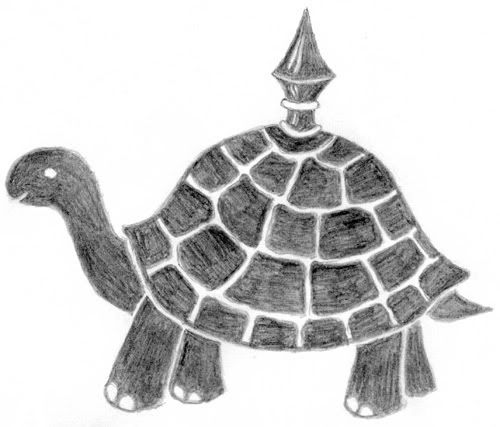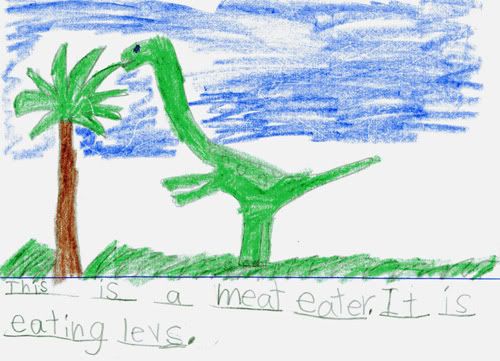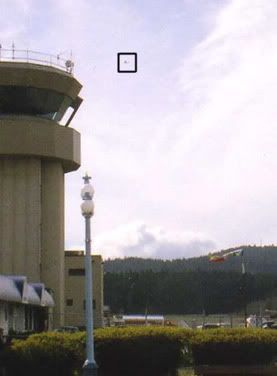The final part of my cross Canada flight, and perhaps the longest:
"General passengers to the front." With that I stood up, hurriedly stuffing my still unfinished sudoku puzzle into my pocket and entered the plane. I sat down behind the wing again, but closer to the back. The plane itself was the same model; 737, I think, and the interior, and exterior, were near identical. As I look out of the window, for I have a window seat once again, I can see the little people, zooming about the boeing sized parking.
I hear an engine, ours? Either way, I hope there will be an in-flight meal this time, as already stated I don't care about the movie. An announcement, you must excuse me... to Tawato!
Up in the cloudless sky, the Calgary sub-urbs and sky line gone once again. Above are clouds, but I can't see any below.
note: here I apperently stopped writing, but the plane has gone either over the clouds or has reached lower ones.
I can bearly see a road, a still sandy expanse, as I look through my window through heavy clouds, of which, as I stated, I can see, as if through a screen, not a break in the clouds, the country below. I expect a snack soon, which may calm my stomach, but for now: chatter, clouds and the sky.
...awaiting snacks...finished snacks...past fluffy clouds, now flying over a clear sky, looking down at clumps of tiny pools, looking like a well insect-tunneled tree. A while ago I had passed a very big river, but now I can only see an ice-covered lake and the a-fore mentioned clumps of pools. Roads and fields, tiny spots of water, and the occasional river, the one below me being covered in a layer of ice, and little mountain-like rises flank the river and carve out a valley after the river ends and winding on below me. The river, and tributaries attached, are dotted with little lakes. Tiny, fluffy clouds are dotted over the sky, settling to a long strip of clouds going to the horizon, and then turning into a smooth, thin, fog like expanse. Fields going to the horizon, a little village below, I think I can even see the white covers on hay bundles in a field. The insect-hole-like pools I had mentioned are once more visible, if more scattered.
...more icey lakes... another dry river-valley, same as the first, is now visible to me and, though thinner than the last, meets water once again and continues it's winding way to the horizon.
...more ice lakes, smaller now, and is that a small river? Running too. Another river, the ice reaching only so far and the rest; valley. Do you get a feeling of deja vu? Because I do. I'll write if I see something new. (in other words, not ice lakes.) :-)
The land looks greener, but not much, and still no end in sight. I hope reading this isn't as dull as it seems to me. If you have lost interest, I don't blame you, but otherwise, I'm sure the scene will change soon. Also you should consider that I'm writing of the scenery of half of Canada, a description of which could be much longer than my few post.
We're turning, and it must be for a reason. Spots of more sandy-white scenery are appearing and now engulf the land. In short, it looks like a desert. Grids are appearing, clearly man-made, and they look like roads. But why would there be roads in the middle of nowhere? Well, as I find out later, what looks like desert sand is really just yellowish snow, and the roads are to get to little farm houses, that looked to me like trees at first. Needless to say, the farms would be rather un-productive with all the snow. As to the amount of farms; hundreds, as far a my eyes can see.
The snow makes way for a green-gray expanse. I'll leave off for a while to rest my tired hands, my thump in particular which, by my strange way of holding a pencil, bears the brunt of my work.
Perhaps the dullest country of all, gray is now dominant, going as far as the eye can see. As to the land itself, still ice lakes, insect-holes pools, a field or two and the occasional largish lake in the background. Finally, there is one huge, icey lake below. Another right beside it is now visible, that is attached, in turn, to a truly gigantic lake a bit further off.
A strip of pink and orange is appearing in the horizon, a thin, grayish cloud-field is to be seen near it. I'll break now for another snack.
As orange dissapears from the strip of colour, the sky, everything, darkens. Fluffy clouds are seen below, and the plane's outside lights come on. By now the strip of pink, too, is going, and with it my ability to distinguish plane wing from ground. Or cloud, I don't know. As I look out again, even the sky is turning to the colour of the land below; black. Now only the planes outside lights are visible without, and within most lights, too, have been turned off, following an announcement in English and, right after, french. A muscle in my thump is somewhat strained, so I'll take another brake. Also, in my complaining style, I'll add that my ear is once more annoying.
I will take this time to describe the bathroom. Namely, that it is the size of a closet, has actual tissue papers for cleaning hands, and at the push of a button the toilet flushes with a mighty roar. In short, I prefer the one we have at home. (At least four times bigger, I'm betting on six.)
Anyway, as a change of topic, outside, other than the planes lights, a blinking red one rythmically illuminates pat of the wing and then disappears, it is totally black outside. The monotony truly puts the cloud cover from my first flight into perspective. Compared to this it seems quite lively.
Down and down goes the plane. No, nothings wrong or exiting, unless you count the fact hat my tale is nearly at it's end. On go the landing lights, at first I thought it was thunder, and inside the general lighting has returned. I may have to halt any moment now, landing procedures, so I might as well leave you for now, leaving you to ponder my annoying ears. :-) note: I can see the wings! No, we haven't flown through the night, it is simply the fog reflecting city, plane and airport lights. More changing pressure and a lighted city below. The runway is now visible below, and traffic. Actually, this isn't really a note. The following is however: it later turns out that what I thought was the runway was just a major road. For noises I hear mainly rumblings.
Some blue lighting, shops I think, and we have just landed, I myself completely ignoring normal procedures and keeping on with my log, (I'll make it up to them in the return flight), with a mighty roar. Finally, settling down, our flight at an end; the last announcement, (will it be followed in French? Yes!) and we're done. Or are we? We were at a stop on the taxi way, twenty minutes early. The crew told a joke to keep us amused, (unfairly enough, not followed in French) and then the pilot informed us that due to our quick arrival, a plane is in our gate.
note: in Calgary we were fifteen minutes late. So we wait.
The plane is filled with a 'new car smell', despite the lack of cars. Well, we're off again, and we now wait for the crowd in the plane to thin. Noises, a waiting crowd, more noises, little people outside, more noises...my thumb :-) ... out we go.
After walking through the airport building, we now await the baggage. It so happens that the baggage carosel has soon started, but no luggage, let alone ours, in sight. The first baggage comes, and ours soon after. I must break now.
...at the car rental counter...crunching numbers...done! Now through an open air lot and into our near-fully automated car, which has a sickish scent of fake berry smell, no doubt an air freshner, and we're on the open road to Knotings (Tnokings). The sky is slightly light due to the fog, but I can still see little but what is illuminated by car lights.
North, West, South, West again, South, West once more and South into Knotings. The rest of the day is groceries and bed, so I'll leave it off. Well, there you have my day of flying, waiting, and driving. I hope my narrative wasn't too dull, and I will not write down my stay or return to Wary Ave. See you next post, (if there is one), Gnomey





























